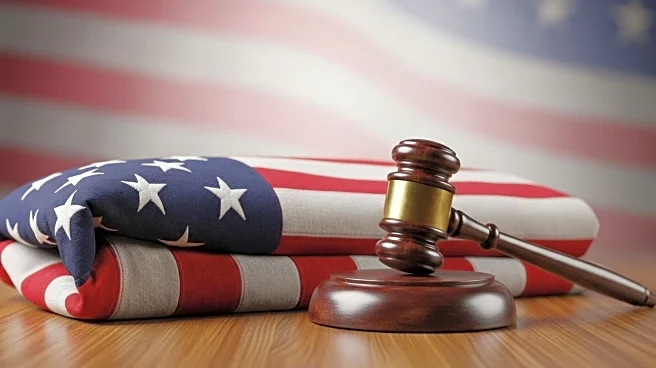What's Happening?
Jay Carey, a decorated former soldier, was arrested for burning an American flag near the White House in protest of an executive order signed by President Trump. The order directs federal agencies to prosecute individuals who desecrate the flag. Carey, who served 20 years in the Army and was awarded a Bronze Star, argues that flag burning is protected under the First Amendment as symbolic speech. He was charged with violating a law against lighting fires on federal park land and released after four hours. Carey plans to challenge the executive order, asserting it infringes on constitutional rights.
Why It's Important?
This incident highlights ongoing debates about the limits of free speech and the government's role in regulating symbolic acts like flag burning. The executive order by President Trump raises questions about the balance between national symbols and individual rights. The case could set a precedent for how such acts are prosecuted and interpreted under the law, potentially impacting future legislation and judicial decisions regarding First Amendment rights.
What's Next?
Carey intends to escalate the case to higher courts, potentially challenging the executive order's constitutionality. This could lead to significant legal battles and public discourse on free speech rights. The outcome may influence future executive actions and legislative measures concerning symbolic speech and protest.










